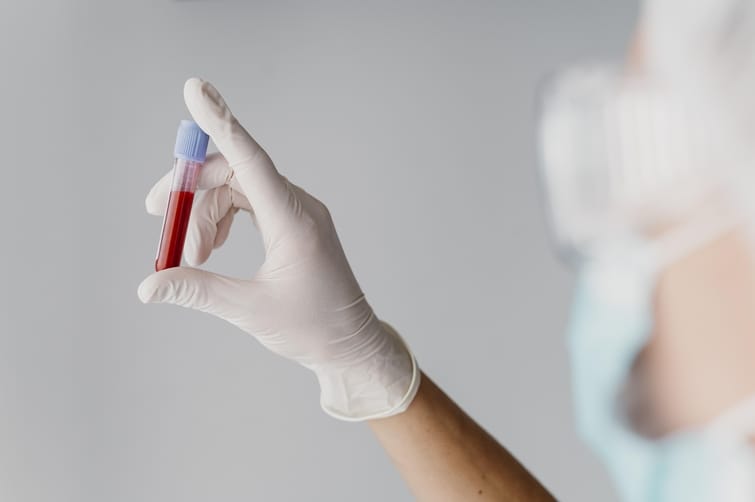Diabetes Test in Birmingham
At OneMedicine, we provide private diabetes testing in our modern clinic in Edgbaston, Birmingham. From HbA1c (average blood sugar) to fasting glucose and related checks, our experienced GPs offer clear, practical guidance so you receive the right care and a plan tailored to you. Bookable same day, with rapid results and straightforward explanations.
Diabetes Testing – A Simple Step for a Healthier Future
Keeping an eye on your blood sugar levels is one of the best things you can do for your health. Whether you’re checking for early signs of diabetes, managing an existing diagnosis, or simply staying proactive, regular testing gives you the power to take control. Catching diabetes early can help prevent complications like heart disease, nerve damage, and kidney problems, while ongoing monitoring ensures your treatment is working and you’re feeling your best. A small test today can make a big difference for your future well-being.
Some of the tests we offer
Long-term sugar marker (HbA1c Test)
Measures your average blood sugar levels over the past 2-3 months to diagnose or monitor diabetes.
Oral Glucose Tolerance Test (OGTT)
Tests how well your body processes glucose after consuming a sugary drink, often used to diagnose type 2 or gestational diabetes mellitus.
Testing for pregnancy-related diabetes
Specifically checks for gestational diabetes during pregnancy, usually performed between 24-28 weeks.
Diabetes monitoring
Ongoing tests to keep track of your blood sugar levels and adjust your treatment as needed.
If you need further tests, we're here to assist. Just let us know.
What to expect at your appointment
1.
Consultation
A friendly, focused appointment with a GP to discuss symptoms, risk factors and medical history.
2.
Sample Collection
A quick blood test taken by our clinical team using sterile, single-use equipment.
3.
Results
Your results are reviewed by a GP and shared securely with clear context—what they mean now, and what they mean for your long-term health.
4.
Follow-Up
We’ll outline next steps, which may include lifestyle advice, starting or adjusting treatment, or onward referral to a specialist.

Why choose OneMedicine in Birmingham?
- Private, same-day appointments in Edgbaston, Birmingham
- Experienced GPs with a patient-first approach
- Clear, jargon-free results with advice you can act on
- Rapid laboratory turnaround and secure digital results
- Convenient location with easy access from Birmingham city centre and surrounding areas
- Nationwide options for sample collection through our partner laboratory

The importance of having a diabetes test
Even without obvious symptoms, diabetes and pre-diabetes can quietly affect your health. Testing helps you act early and confidently.
- Find problems sooner: Identify pre-diabetes before it becomes type 2 diabetes.
- Prevent complications: Reduce risks to your heart, kidneys, eyes and nerves with timely treatment.
- Track progress: See how well lifestyle changes or medication are working.
- Make informed choices: Understand your personal risk if you have a family history, raised weight, high blood pressure or previous gestational diabetes.
- Peace of mind: Clear results and expert advice to support long-term health.
Frequently asked questions
Who should get tested for diabetes?
Anyone experiencing symptoms such as increased thirst, frequent urination, fatigue, unexplained weight loss, or blurred vision should consider getting tested for diabetes. People with a family history of diabetes, those who are overweight, and individuals with high blood pressure or high cholesterol are also at higher risk. Pregnant women, especially between 24-28 weeks, should be tested for gestational diabetes. Additionally, regular screening is recommended for individuals over the age of 40, as the risk of developing type 2 diabetes increases with age.
How is the HbA1c test different from other blood sugar tests?
The HbA1c test measures your average blood sugar levels over the past 2-3 months, providing a long-term view of your blood sugar control. Unlike other tests that check blood sugar at a specific point in time, the HbA1c test gives a broader picture of how well your body is managing glucose over time. This makes it especially useful for diagnosing diabetes and monitoring how well treatments are working in people with the condition.
What is the purpose of the Oral Glucose Tolerance Test (OGTT)?
The Oral Glucose Tolerance Test (OGTT) is the gold standard test used to assess how well your body processes glucose. It’s often used to diagnose type 2 diabetes and gestational diabetes. During the test, you’ll drink a sugary solution, and your blood sugar levels will be measured at intervals to see how effectively your body is clearing the sugar from your bloodstream. It’s particularly useful if other tests like the fasting blood glucose test show borderline results.
How often should I have diabetes monitoring tests?
If you’ve been diagnosed with diabetes, regular monitoring is key to keeping your blood sugar levels in check. Your doctor will recommend how frequently you should have tests based on your treatment plan and overall health. Typically, people with diabetes will have an HbA1c test every 3 to 6 months to monitor long-term blood sugar control. More frequent tests may be required if adjustments to medication or lifestyle are needed. Regular monitoring ensures that your diabetes is well managed and helps prevent complications.
















